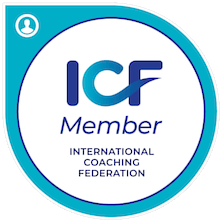
Did you know?
- Mental disorders, such as mood disorders, are the leading cause of disability in ages 15-44.
- There has been a 10% increase in mood disorders every decade over the last 100 years.
- Nearly 25% of the US population will be affected at some point in their life
- By 2020 depression will be a close 2nd to ischemic heart disease as a cause for disability.
Depression is strongly associated with co-morbidities and the increased prevalence of chronic disease.
Patients with Type 2 diabetes have twice the rate of depression as the general population.
Causes of Depression
Depression is a very personalized and individualized constellation of symptoms. The following are some of the most common risk factors for developing depression:
- Trauma- physical or emotional
- Lack of Social Connection
- Genetics
- Food Allergies- often undiagnosed
- Toxic Overload- heavy metals, environmental exposures in air and water, pesticides, other chemicals
- Medication Side Effects
- Infections
- Neurological disorders such as stroke, multiple sclerosis, Parkinson’s disease, brain tumors
- Nutritional deficiencies
- Immune/Inflammatory Triggers
Standard Treatment
Psychotherapy
- Cognitive-Behavioral Treatment (CBT)
- Interpersonal Psychotherapy (IBT)
- Electroconvulsive Therapy (ECT)
- Psychopharmacology
Currently there are approximately 59 anti-depressant medications available
Experimental Treatments
- Vagal nerve stimulation
- Repetitive transcranial magnetic stimulation
New Thoughts on Treatment
It may be that one treatment regimen is not enough. Medication may greatly improve one person’s symptoms but intensify another’s. Each person must be carefully evaluated by taking an extensive history, pertinent memories and events and how their symptoms are currently impacting their life. In Functional Medicine, a time line for each patient is created that identifies antecedents, triggers and the effects they feel . The time line begins before birth and continues to the present. By doing so, it becomes easier to see where a disruption(s) began and what the outcome(s) has been.
it becomes easier to see where a disruption(s) began and what the outcome(s) has been.
Here are 22 optional treatments that can be applied to the majority of people. However, these suggestions should not be started until you have discussed them with your health care provider.
- Exercise- vigorously 5 times per week for 30 minutes. This helps to increase the level of BDNF (Brain Derived Neurotrophic Factor). BDNF is a protein that may help with protection of the brain from elevated cortisol due to stress.
- Take a walk with a friend.
- Avoid toxicity- Check the labels of what you are eating, drinking, using to wash your clothes and your body. You may need to be evaluated for toxicity, especially, metal toxicity.
- Improve diet- Avoid sugar, caffeine and alcohol, tobacco products, wheat products. Decrease intake of dairy products.
- Change your diet and eat only whole foods, high quality proteins, cold water fish, vegetables, nuts, seeds, whole grains and fresh fruits. A whole foods diet refers to food that has nothing added and nothing removed.
Supplements
- Activated Vitamin D3- cholecalciferol) – 2000-5000 iu daily works for most people unless your Vitamin D level is very low or you have an underlying problem that prevents you from having the ability to restore your Vitamin D level.
- Vitamin B complex- especially B3, B6 (50mg daily), B9 and B 12 (1000mg daily with at least half in the form of methylcobalamin).
- Vitamin C- 500-1000mg daily.
- Magnesium amino acid chelate (aspartate, glycinate, ascorbate, taurate or citrate)- 400-600mg daily.
- Selenium (as amino acid chelate or called selenomethionine)- 100-200mcq daily.
- Zinc – 10-30 mg daily.

- Probiotics – 10-20 billion organisms with multiple species of organisms included. Take on an empty stomach or with food twice per day.
- Omega 3’s (EPA/DHA)- Fish oil 1000mg twice per day containing a ratio of EPA/DHA 300/200.
- Folic Acid- 800mcq daily with at least 400 mcq coming from the active form L-methylfolate of 5-MTHF.
Use Relaxation Techniques such as meditation and acupuncture
- Consider Acupuncture
- Improve your sleep- by eliminating alcohol, caffeine, tobacco products your sleep patterns will improve
- Practice Breathing techniques
- Visualization and Imagery may help
- Buy a journal and write in it each day
- Explore your faith and reconnect or expand your beliefs more fully
- Consider homeopathy and botanical treatments
- Aromatherapy
As a final word
Find a practitioner that is willing to listen to what you want to accomplish and will explore non-traditional methods of improving your mood. You will need to discuss any treatment with your practitioner so that he or she can evaluate your physical, emotional, spiritual and social needs prior to beginning any therapy.
Recommended reading:
- Whole Foods Diet Cookbook, Andrew and Ivy Larson
A Whole Foods Primer, Beatrice T. Hunter
In Defense of Food, Michael Pollan
The Miracle of Mindfulness– Thich Nhat Hanh
Inflammation Nation– Floyd Chilton, Ph.D.
The Ultramind Solution– Mark Hyman, MD
Food as Medicine– Dharma Singh Khalsa, MD
The Omega 3 Connection– Andrew Stoll, MD
The Better Brain Book, David Perlmutter, MD
Balance Your Brain, Balance Your Life, Jay Lombard, DO
Textbook of Integrative Mental Health Care, James Lake, MD
The Chemistry of Joy. A Three Step Program for Overcoming Depression Through Western Science and Eastern Wisdom, Henry Emmons, MD
Unstuck, Your Guide to the Seven Stage Journey Out of Depression, James Gordon, MD
Websites:
www.naturalstandard.com – comprehensive evaluation of supplements
www.consumerlabs.com– non biased reporting on integrative care








